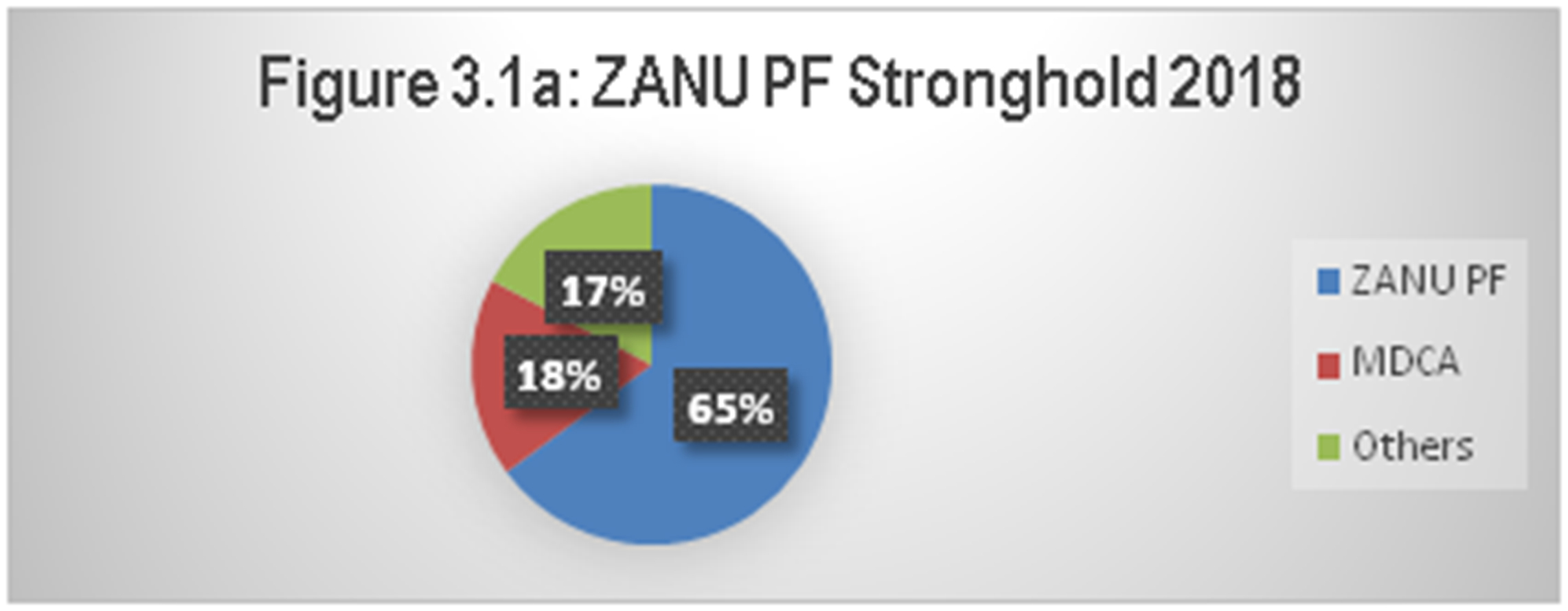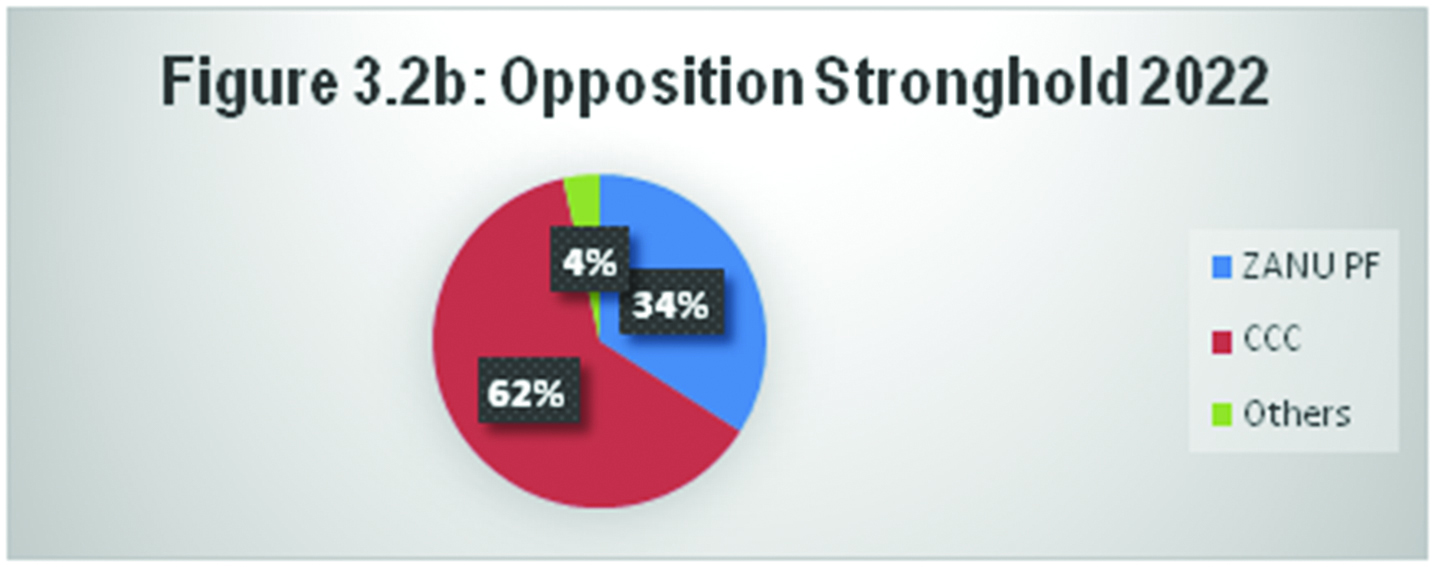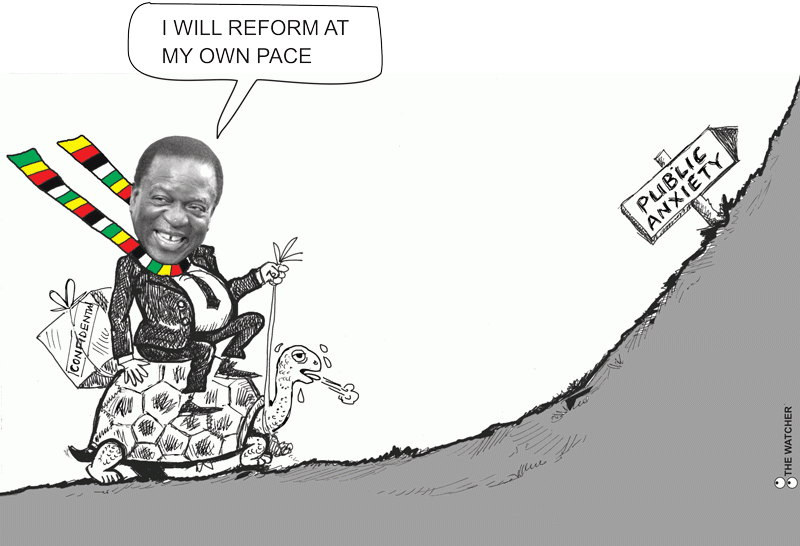
BELOW are excerpts from a report by Zimbabwe Democracy Institute:
Summary of key findings Authoritarian resilience infrastructure
The electoral defeat of the ruling party in Zambia in 2021 has triggered the ruling Zanu PF elites to intensify building and strengthening the authoritarian capability and resilience infrastructure. The current political economy has therefore been characterised by the deployment of strategies to prevent the 2021 Zambian precedent and boost Zanu PF staying power beyond 2023.
In this report, we conceptualise Zimbabwe as a competitive authoritarian regime that is neither in transition towards democratic breakthrough nor towards absolute autocracy. It is a deliberate mid-way regime with strong institutional safeguards to keep the system neither a democracy nor an absolute autocracy.
On one hand, the regime fears full democracy for its exposure of un-electable elites to potential electoral defeat by the opposition, and on the other hand, fears absolute authoritarianism for its inherent proneness to suffer coup d’états, civil wars, and international isolation.
The competitive authoritarian regime in Zimbabwe is broadly characterised by three key actors in order of their power relations: i) the military elite, ii) Zanu PF, and iii) state institutions for democratic consolidation — the media, judiciary, legislature and the electoral arena.

- Chamisa under fire over US$120K donation
- Mavhunga puts DeMbare into Chibuku quarterfinals
- Pension funds bet on Cabora Bassa oilfields
- Councils defy govt fire tender directive
Keep Reading
The military elite is the decisive power bloc affecting Zanu PF decision-making directly while affecting state institutions directly or indirectly via Zanu PF as its medium.
Four regime durability capability infrastructures intensified by President Emmerson Mnangagwa’s administration are identified as: i) infrastructure for coercion of rivals; (ii) infrastructure for the extraction of revenues; (iii) infrastructure for the registration of citizens; and (iv) infrastructure for the cultivation of dependence.

Democratic breakthrough Mobilisation of large numbers of voters or large masses to protest electoral manipulation has been the two key strategies used by the opposition to create ‘substantive uncertainty’ or ‘procedural certainty’ of elections respectively.
Divisions in the ruling elite and opposition alliances with moderate ruling elites make transition to democracy possible.
Cooperation of the military in citizen-led transition is the most fundamental facet for a democratic breakthrough in Zimbabwe and the worst feared scenario in the minds of the handlers of the Zanu PF regime led by President Mnangagwa. Recent studies reveal that strong regimes have been overcome by citizen protests when security forces either join the citizens or decide not to shoot their fellow citizens in defiance of Outcomes in Zanu PF strongholds
Zanu PF increased from the 2018 baseline of 65% to 75% of the total votes cast in 2022 in its stronghold. There is an additional 10% in 2022 showing that Zanu PF is increasing its performance and popularity in its stronghold regions.
The Citizens Coalition for Change (CCC) performance in Zanu PF stronghold regions increased from the 18% share of MDCA to 22% in 2022. There is an additional 4% showing that CCC performed better than MDC Alliance in Zanu PF stronghold regions.
The proportions with which Zanu PF and CCC gained in the Zanu PF stronghold indicate that the ruling party support is growing faster than that of CCC in this region. Zanu PF’s winning margin increased by an additional 6% in its stronghold.
In 2018, MDCA fell short against Zanu PF with 47% whereas in 2022 it fell short with 53% in the same region. Read together, these statistics show that if Zanu PF manages to maintain this growth trend, it will completely knock out the opposition from its stronghold regions.
The reduction in a few contesting candidates per constituency in 2022 saw a reduction in the total share of “other” political players from 17% in 2018 to 3% in 2022.
Outcomes in opposition stronghold
The findings indicate that CCC performance increased by 3% of the 2018 MDCA vote compared to Zanu PF’s 8% increase in opposition stronghold constituencies.
Whereas Zanu PF got 26% of the total vote in 2018, it managed to improve to 34% of the total vote in 2022 in the opposition stronghold. This is compared to CCC’s increase from MDCA’s 59% in 2018 to 62% in 2022 in the opposition stronghold.
Zanu PF needed 33% +1 to win in the opposition stronghold in 2018 whereas, in 2022, it only needed 28%+1 to win in the same area.
There is a 5% shrinkage in Zanu PF’s losing margin in the opposition stronghold.
In addition, the vote received by other candidates decreased from to 4% in 2022 from 15% in 2018 in the opposition stronghold.
In 2022, the total votes in the Zanu PF stronghold declined by 46% of the 2018 baseline whereas they declined by 63% in MDCA/CCC stronghold in the same period. In the Zanu PF stronghold, CCC dropped 51% of the 2018 vote given to MDCA whereas Zanu PF dropped 38% of its 2018 vote in the same area. This contrasts with a 61% drop in total votes by CCC and 34% drop in total votes by Zanu PF in the opposition stronghold in March 2022. This shows that poor voter turnout affected the CCC stronghold more than Zanu PF stronghold regions.
Conclusion This report presented findings on the role of the military in transition and electoral processes in Zimbabwe. The study found that the military is involved in the transition and electoral processes directly through deployment to suppress opposition mobilisation, deployment in Zimbabwe Electoral Commission (Zec), and indirectly through Zanu PF.
The study also revealed that the Mnangagwa government has entrenched authoritarian resilience infrastructures in an attempt to prevent the Zambian authoritarian overthrow precedence from happening in Zimbabwe in the 2023 elections.
Using the conceptual framework of militarised competitive authoritarian regimes, the report argues that the centre of gravity in Zimbabwe’s competitive authoritarian regime is the military elite who captured Zanu PF for manipulating key democracy institutions mainly the judiciary, and the legislature, the media, and Zec.
The report also posits that the capture of Zanu PF is historical and philosophical as it is heavily ring-fenced by four interrelated philosophical narratives that have made military involvement in electoral and transition processes a practicable and inexorable culture in Zimbabwe.
Thus, the report emphasises that the future of transition cannot be thought of or conceptualised without attention to the role of the security forces in that transition. The report was also informed by theoretical frameworks in Slater and Fenner (2011) to illustrate how the Mnangagwa government has built its authoritarian resilience infrastructure.
Despite the heavy authoritarian resilience infrastructure put in place by the Mnangagwa regime, the report posits that there is still more than one option for a democratic transition that are still possible in Zimbabwe. The role of massive voter mobilisation and turnout is emphasised as the most important facilitator of transition in Zimbabwe. The role of the military elite, the nature of the relationships between the ruling party and the military and the opposition are emphasised under each possible transition pathway.
In addition to the strengthened authoritarian resilience infrastructure, the findings from the 26 March 2022 election showed that there is indeed more authoritarian resilience than opposition resistance.
Zanu PF has shown strong evidence of performance rebound in its stronghold and in the opposition stronghold whereas the opposition declined in many provinces and improved in few. In many cases, Zanu PF improved by greater proportions than the opposition which entails a possible opposition defeat if all other conditions such as reduced number of candidates per constituency and voter turnout remain constant.
The March 2022 by-election results also showed that the decline in voter turnout was more in opposition strongholds than in Zanu PF strongholds. This went hand in hand with the decline in total votes obtained by the opposition, which was greater than the declines experienced by Zanu PF.
The decline in voter turnout was thus observed to be disadvantaging the opposition and pointing to poor voter mobilisation and sensitisation among opposition parties.
This report also presented research findings on the perceptions of citizens on key transition and electoral processes in Zimbabwe. The findings revealed that the military of Zimbabwe lacks impartiality as it is closely linked to Zanu PF and indulged in civilian politics.
The military has been hostile to the opposition whilst conflated with Zanu PF. The report also shows that Zanu PF and Zec have a symbiotic relationship mainly caused by the appointment of either retired elements of the army into the Zec secretariat or the appointment of Zanu PF supporters to serve as Zec commissioners.
Zec has been perceived as a compromised body due to its close links with the military and Zanu PF. Zec has shown animosity and impartiality when dealing with main opposition political parties.
Recommendations The main goal of the Zimbabwe Democracy Institute is to promote a democratic transition in Zimbabwe. Hence the recommendations proffered in this report focus on enhancing democratic transition and democratic resilience in Zimbabwe. For democratic transition and democratic resilience to be achieved in Zimbabwe, ZDI avers that there is a need for:
Security sector transformation to enable the emergence of working synergies with various political players;
Programming that engenders synergies between civil society organisations (CSOs), opposition, and the security sector.
Major reforms and transformation of Zec to engender independence, integrity, and transparency. If this fails, proportional representation of key stakeholders in the election should be engendered at all levels of Zec.
Increased voter mobilisation and sensitisation.
Increased voter registration, particularly among youth and urbanites.
Increase voter education and awareness.
Increase citizen-led vote monitoring and securitisation, particularly in remote rural polling stations. Every polling station must have enough polling agents and observers to curb polling station-based election manipulation.
Increased voters’ roll monitoring and awareness at a polling station level.
Capacitate CSOs and community-based organisations (CBOs) to monitor elections at a polling station level.
Increase monitoring, reporting, and resolution of political violence.
Depoliticise government aid.
Increased international monitoring of elections.
Challenge the shrinking political space for CSOs and the Opposition.
Programming and advocacy on the Private Voluntary Organisations Bill.
- Zimbabwe Democracy Institute is a local public policy think-tank. Read full report on https://www.theindependent.co.zw










